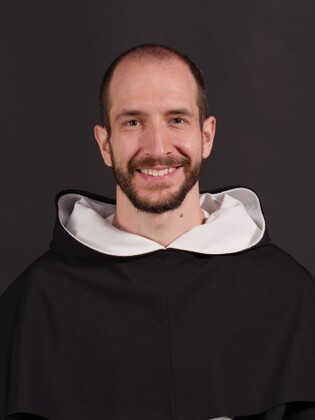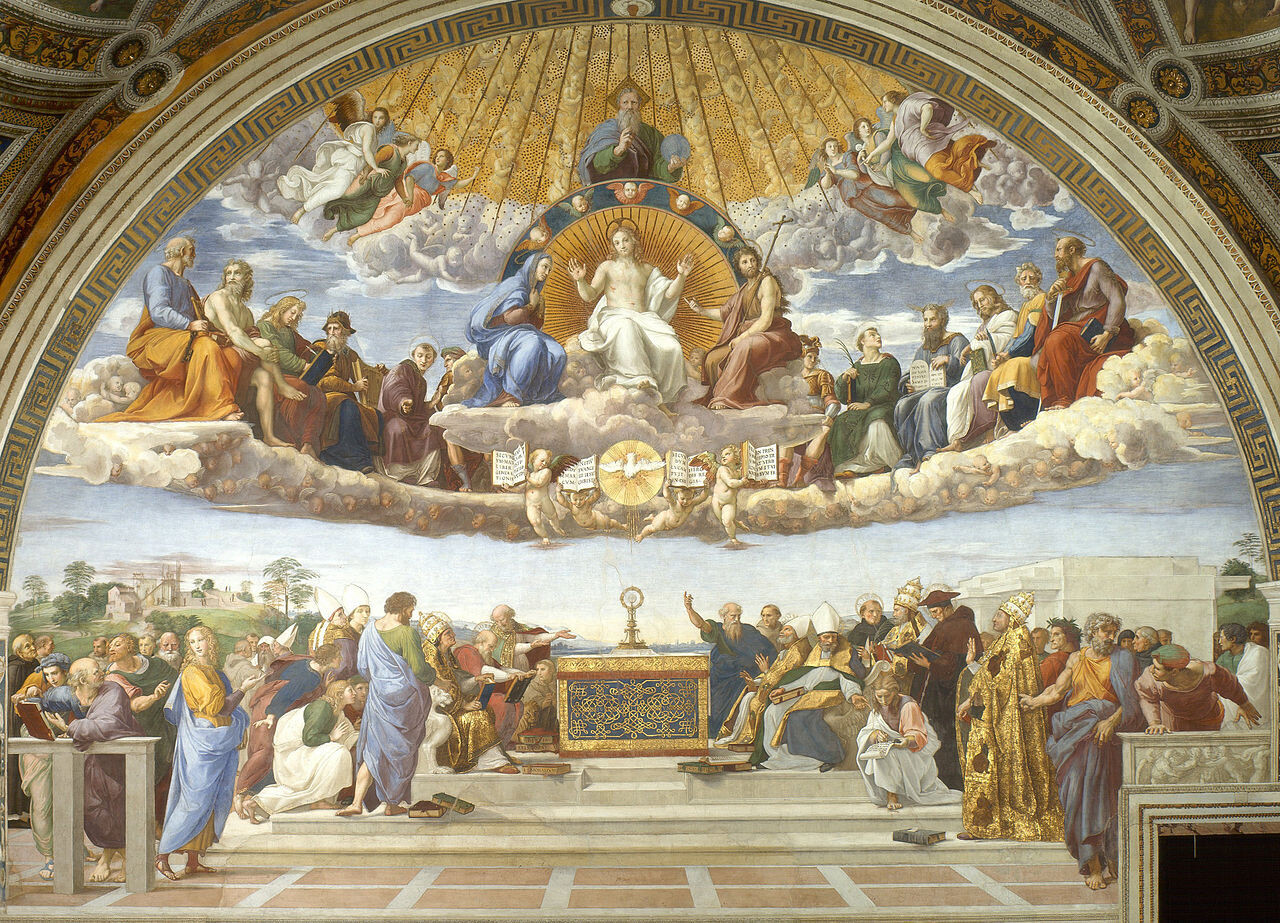Kurt Vonnegut’s 1963 novel Cat’s Cradle features a fictional religious movement that teaches that life is intrinsically meaningless. People, however, need to create their own meaning, which they do in part through imagining granfalloons – superficially meaningful associations of people. We don’t have to be nihilists ourselves to appreciate the grain of truth in Vonnegut’s satire: so many people are so desperate for meaning or connection that they’ll build their whole identities around political parties, social clubs, or even niche Internet subcultures. To a cynic, our life as a Church may look like just another granfalloon. Who are all of these unrelated people – most of whom will never meet each other – and how can they claim to be “one body?” This is why we always need to remember St. Augustine’s admonition that “the Eucharist makes the Church.”
It’s easy to think of the Christian life in moralistic terms: we’re God’s People because we follow certain rules of life. If we’re more imaginative, we might describe our identity as a Church in terms of a commitment to social justice. Either way, no matter how good our personal or social moral aspirations are, they can only achieve a superficial unity of action that doesn’t unite us in our very being. Even our common prayer will fail to unite us on this level if we approach it like cultural anthropologists, thinking that the words we say and the gestures we make are meaningful just because we happen to be saying and making them together. Then we would just be “performing” meaning for ourselves – and that would be the most obvious kind of granfalloon!
Fortunately, the liturgies of this time of year draw heavily from the Letter to the Hebrews and the First Letter of St. Peter, and there we find the real foundation of our identity as a Church. Just like the Israelites were marked as God’s People by the sacrifices of the Mosaic Law, we are made a “holy nation” and a “royal priesthood” through the one sacrifice that Jesus our High Priest offered on the Cross. Baptism and Confirmation indelibly mark our souls as members of His Mystical Body. Better yet, while the ancient Israelites were symbolically united in ritual meals from sacrifices of the Mosaic Law, we have really assimilated the body, blood, soul, and divinity of Jesus into our very selves by receiving the Eucharist. We can truly claim to be one people because we live one life by the same divine power that dwells in all of us.
Let us pray, then, that our lives may always be as one with Jesus’s one sacrifice. Then, when the granfalloons of this passing world are inevitably scattered, we will rise up as one, undying body to offer our one Father an eternal sacrifice of praise.

Br. Philip Neri Gerlomes, O.P. | Meet the Brothers in Formation HERE
